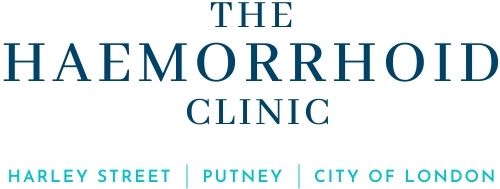Itching or soreness around the bottom, particularly at night, is a very common condition. It can often relate to skin conditions such as eczema or psoriasis, but can be related to other family illnesses such as threadworms, which is more common in men and a commonly known as pruritus, a night time itchy bottom.
Pruritus at night can equally be caused by other conditions within the anal canal and rectum, such as haemorrhoids or bowel inflammation such as colitis which can create irritation in this area.
Treatment for the itchy bottom generally depends on the condition itself.
In order to be able to diagnose the cause of a itchy bottom it is often worth seeing your doctor or one of our consultants to get a better understanding of what the potential causes may be. This often involves an examination of the external anal area to assess the skin and whether or not there any skin lesions or skin conditions that may be attributing to this.
If there’s no obvious cause at that point then it would be entirely reasonable to do a proctoscopy examination or internal examination to see whether or not you have any haemorrhoids that may be causing the symptoms.
We often find that patients’ perception of wanting to feel clean due to hygiene concerns means that they can commonly over wipe the areas, use too many fragranced disposable wipes, soaps, powders or other remedies in the pursuit of having a perfectly clean anal area. Unfortunately the reliance on wet wipes, soaps and washing can often in itself cause skin irritation and as such, patients who are constantly trying to keep desperately clean can often exacerbate symptoms.
The other area to address is a simple lifestyle choice in terms of bowel habit; healthy diet and the frequency of which people go to the toilet. Having a good balanced high fibre diet often means that you are regular in going to the toilet, but it also helps prevent from people from straining and causing other conditions would hopefully also help address the need to constantly wipe the area if their bowel habit is regular.
Frequently Asked Questions – Itchy, Sore Bottom
How do I know what the cause of an itchy bottom is?
It is often very difficult to diagnose an itchy bottom oneself and is therefore worth consulting with your doctor, particularly if it is persisting more than a few weeks.
What are the common is causes for an itchy bottom?
The commonest cause for an itchy bottom is often irritated skin in the area which can just due to be a skin condition such as eczema or psoriasis or often commonly due to over wiping them over cleaning with detergents that itself causes irritation
How do I keep clean if I suffer with eczema or dry skin?
There are plenty of soup substitutes from the chemist that you can buy that do not dry out the skin but also ensure that the area is washed and kept clean. The avoidance of soap and wet wipes is important if you suffer with dry skin conditions. Products that you can get from the chemist that help clean the area but also moisturise at the same time include Cerave, Dermol 500 lotion as examples of soap substitutes.
What should I do if my itching and bleeding is not settling ?
Itching and bleeding is commonly associated with excoriation or small little sores in and around the anal skin. This can often be attributed to over scratching and non-healing of the area. Sometimes these require prescription medication creams to help calm down the inflammation as well as potential overgrowth of the natural skin flora, as these can commonly be associated with thrush infections.
What products can I try if I don’t want to go to the doctor?
Over-the-counter creams that one can try for simple itching and soreness in this area can include
- Barrier creams Sudocrem, Epaderm ointment
- Soap substitutes dermol 500 lotion, CeraVe wash, Cetaphil wash
- Anti itch / candida cream – hydrocortisone cream and anti fungal known as Daktacort
- Stop using soaps and wet wipes
